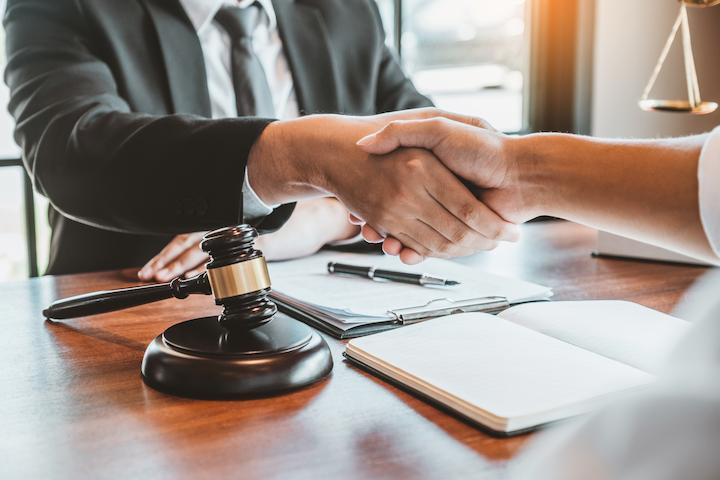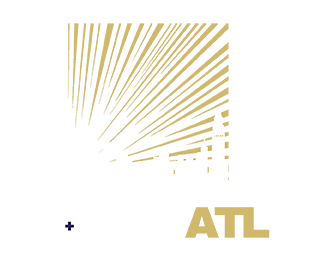Los daños punitivos son un aspecto importante a considerar en un caso de daños personales. Los daños personales...

Damages is the legal term used to describe the monetary compensation awarded to the plaintiffs in civil lawsuits. In a personal injury case, damages are usually awarded to individuals who suffered injuries in accidents caused by another person’s negligence. No two personal injury claims are the same, and determining how much compensation an accident victim is entitled to can be a contentious process.
Nathan Fitzpatrick is an experienced personal injury lawyer who specializes in personal injury in Atlanta, Georgia. In this article, he explains the difference between economic, non-economic, and punitive damages. Attorney Fitzpatrick also discusses the missteps and mistakes that an accident victim can often make when seeking compensation in a personal injury case.
Introduction to Personal Injury Damages in Georgia
There are three types of damages that can be awarded in a personal injury case. Economic damages compensate accident victims for financially quantifiable losses like medical bills, lost income, and accident-related out-of-pocket expenses.
In contrast, non-economic damages are awarded for harms that are difficult to place a dollar value on like pain and suffering and emotional distress. Punitive damages are awarded to punish the defendant and deter others from behaving in the same way, and they are awarded when injuries are caused by intentional or grossly negligent acts.
The Spectrum of Personal Injury Cases: Understanding Your Rights
A personal injury plaintiff is entitled to damages when they can prove by a preponderance of the evidence that the defendant owed them a duty of care and failed to meet it. They must then show that they suffered injury, loss, or damage as a direct result of the defendant’s negligent or intentional actions. Most personal injury claims are filed by car accident victims, but damages can also be awarded to plaintiffs who:
- Were injured in slip-and-fall accidents.
- Were bitten by a dangerous dog or other animal.
- Were injured by a defective product.
- Suffered a medical setback caused by inadequate health care.

Key Legal Framework: Personal Injury Law in Georgia
The law places a duty on all people to act responsibly and expects accident victims to do all they can to mitigate their damages. This requirement means that you could be awarded less compensation for your accident injuries if you refused medical treatment at the scene or failed to follow your doctor’s orders.
In some personal injury cases, negligence is presumed and the burden is placed on the defendant to prove that they did not act recklessly. This legal principle is called strict liability, and it is applied in Georgia lawsuits when the plaintiff was injured by a defective product, attacked by a wild animal, or the defendant was engaged an inherently dangerous activity like transporting hazardous waste.
Compensatory Damages: The Basics
If you prevail in a personal injury lawsuit, most of the money you are awarded will be compensatory damages. These damages compensate personal injury victims for their financial losses and the non-economic consequences of their injuries.
Medical Bills and Calculating the Cost of Recovery
Most people think that calculating compensatory damages for medical expenses involves little more than gathering doctor and hospital bills and adding them up, but the process is actually quite complicated.
A mistake that accident victims often make is not considering their future medical costs. If you hire an experienced personal injury attorney, they could make sure that money is not left on the table by asking doctors about your anticipated point of maximum medical improvement.
This point is reached when your injuries have healed as much as they are likely to, and further treatment or physical therapy would not improve your situation. Your attorney could then use this information to calculate your anticipated future medical expenses.
Pain and Suffering: Quantifying the Intangible
Determining fair compensation for non-economic damages like pain and suffering or mental anguish is not easy as there are no bills to refer to, and some people can endure more discomfort than others. There are two ways that this is done. The accident victim’s economic damages can be multiplied by between 1.5 and 5 depending on the severity of their injuries, or a daily figure can be calculated and then multiplied by the number of days that pain was endured.
Economic vs. Non-Economic Damages
Economic and non-economic damages can sometimes become entangled. An outcome such as this could happen if an accident victim suffers PTSD after a car accident and seeks treatment from a mental health professional. In this situation, the accident victim would be entitled to non-economic damages for their mental anguish and economic damages for their therapy bills.
Lost Wages and Earning Capacity
Another mistake that personal injury plaintiffs make is not considering all of their lost income. If you are injured by another person’s negligent or intentional actions, you will be entitled to compensation for the time you had to take off work and the time you will have to take off work in the future.
You will also be entitled to compensation if your injuries diminish your earning capacity. This reduction in earning capacity could happen if you missed out on a promotion or had to take a job that pays less and is less challenging.
The compensation for diminished earning capacity could be significant if an accident victim is a professional athlete who suffered a career-ending injury or a model who was left badly scarred.
Emotional Distress and Non-Economic Losses
Doctors can estimate how much pain an injury caused, but determining how emotional distress a personal injury plaintiff endured is far more difficult. In wrongful death claims involving the death of a child, most of the wrongful death damages awarded to the plaintiffs is often compensation for their distress.
Factors that may be considered when calculating damages for this type of distress include:
- The age of the accident victim.
- The accident victim’s life experiences.
- The accident victim’s mental health prior to the accident.
- The impact the accident victim’s injuries will have on their life in the future.
Punitive Damages in Georgia: A Closer Look
Punitive damages are legal remedies that are designed to deter bad behavior like assault or drunk driving. They are basically the civil law equivalent of criminal fines. The difference between the two is where the money goes. Criminal fines are paid to the authorities, while punitive damages are awarded to civil plaintiffs.
When Are Punitive Damages Awarded?
Punitive damages are awarded to punish grossly negligent individuals or people who intentionally harm others. Ignoring safety regulations, discharging a firearm on a busy street, and driving at a speed well in excess of the posted limit are all examples of gross negligence. Punitive damages may also be awarded when civil defendants commit intentional torts like assault or false imprisonment. In personal injury cases in Georgia, punitive damages are most commonly awarded when defendants engaged in acts of road rage or got behind the wheel with blood alcohol concentrations far higher than the 0.08% legal driving limit.
Limitations and Considerations for Punitive Damages
Some states place dollar caps on punitive damages or require them to be proportional to the compensatory damages awarded. The purpose of compensatory damages is to ensure that the injured person is made whole once again or that it helps with aspects like reimbursing victims for factors like lost wages.
Georgia law caps punitive damages at $250,000, but several notable exceptions exist. The $250,000 cap does not apply in product liability lawsuits or cases involving defendants who harmed others intentionally or caused accidents while under the influence of drugs or alcohol.
Relaciones con las compañías de seguros
When damages are awarded in a personal injury lawsuit, the party that writes the check is usually an auto, premises liability, or medical malpractice insurance company. Before personal injury cases go to trial, the parties try to reach a settlement at the negotiating table. If you find yourself in this situation, you will probably be at a great disadvantage if you do not have an experienced lawyer to advocate on your behalf.
Tips for Interacting with Insurance Companies
Insurance companies hire skilled and experienced individuals to negotiate on their behalf, and they task them with settling personal injury claims for as little as possible. When accident victims are under financial stress and eager to settle, insurance companies may delay matters by asking for unnecessary documents or questioning aspects of the case that are clear and unambiguous.
If settling a personal injury case is likely to be expensive, insurance companies may fight tooth and nail over every dollar to wear the plaintiff down. To avoid becoming frustrated during settlement negotiations, you should:
- Make sure that you have documents or other evidence that supports all of your claims.
- Expect discussions to be protracted and contentious.
- Be prepared for questions about your medical history and preexisting conditions.
- Anticipate being accused of being at least partly to blame.
Understanding Settlement Offers
When civil plaintiffs file personal injury lawsuits, they specify how much compensation they seek. This action places a ceiling on how much the defendant could be ordered to pay. When defendants or their insurance companies make a settlement offer, they establish a starting point for negotiations.
Settlement offers may be accompanied by a time limit or “take it or leave it” ultimatum, but this is usually just a negotiating tactic. The last thing that defendants with deep pockets want to do is argue the facts before a jury.

Role of a Personal Injury Attorney in Your Case
When an accident victim hires a personal injury lawyer, they will have a professional fighting for their rights who has a legal and ethical duty to act in their best interests at all times. Experienced attorneys with a track record of success know all about the tricks and tactics insurance companies use to settle personal injury claims for less than they are worth. They usually work on a contingency basis, which means that they do not get paid unless their clients recover damages.
How a Personal Injury Attorney Can Maximize Your Damages
An experienced personal injury attorney could maximize the amount of compensation you receive in a personal injury claim by advocating on your behalf at the negotiating table and in court. An attorney could ascertain your point of maximum medical improvement and determine your future medical expenses and lost income to ensure that money is not left on the table. They could also conduct an independent investigation to gather evidence to support your claim.
The Process of Proving Damages
Insurance companies do not make settlement offers, and juries do not award damages unless they are presented with compelling evidence. This is why keeping a pain diary and gathering documents like medical bills and pay stubs is important if you plan to negotiate with an insurance company or take a negligent individual to court. Civil cases are determined by the preponderance of the evidence, which means you will prevail if your evidence is stronger than the defendant’s.
Documenting Your Injuries and Losses
Keeping track of your losses and expenses is crucial if you hope to receive the most compensation possible in a personal injury claim. Bills from doctors, hospitals, physical therapists, and auto repair facilities are very useful documents, and you should not forget about out-of-pocket expenses like cab, bus, or train fares and prescription drug costs.
You should also keep a pain diary to support your claim for non-economic damages and hold on to your pay stubs so you can show how much time you had to take off work.
Comparative Negligence and Its Impact on Damages in Georgia
The defendants in personal injury lawsuits often try to convince juries to award less compensation by arguing that the plaintiff also acted negligently. This is especially true in car accident cases because Georgia is an at-fault state.
This means that the driver is at fault in an accident, and their insurance company is responsible for compensating injured road users. However, the amount they must pay can be influenced by an accident victim’s comparative negligence.
How Comparative Negligence Affects Your Compensation
Georgia follows the modified comparative negligence doctrine, which means that you will not be able to recover damages if you are injured in an accident and the facts indicate that you were more than 50% to blame.
If you acted negligently but were not more than 50% to blame, the damages you are awarded will be reduced to reflect your degree of fault. If the jury concludes that you were 30% to blame, the damages you are awarded will be reduced by 30%.
Special Considerations in Personal Injury Lawsuits
The compensation awarded to an injured person in a personal injury lawsuit could be reduced even if you did not act negligently failed to do everything reasonably possible to mitigate your damages, or suffered from a preexisting condition that made your injuries worse. You can mitigate your damages by seeking medical treatment, listening to your doctors, and going to work whenever you feel well enough.
Impact of Pre-Existing Conditions on Your Claim
If you were already injured when you were involved in an accident or suffered from a medical condition that made your accident injuries worse, the negligent party you sued or their insurance company will likely use this information to claim that your compensation should be reduced. For this reason, it is not a good idea to conceal preexisting conditions in a personal injury suit. Basically, the truth of the matter will likely come out since your health care records will probably be obtained by the defendant or their attorney sooner or later.
To mitigate the impact that a preexisting condition will have on your compensation, you or your attorney could consult with medical experts, such as doctors, physical therapists, or mental health professionals who specialize in the area.
The Effect of Georgia’s Statute of Limitations on Your Case
The Georgia civil statute of limitations gives personal injury victims two years to take legal action. However, the clock does not always start to run on the date of an accident.
In 2009, the Georgia Supreme Court ruled that the statute of limitations is paused or tolled if the defendant is charged with a crime or issued a traffic citation. In these cases, the two-year time limit begins when the criminal case is resolved, or the ticket is paid.
The statute of limitations is also tolled if the defendant flees the state or takes steps to conceal their identity.
FAQs: Navigating Georgia’s Personal Injury Damages
How Much Compensation Do You Get for Personal Injury?
Serious injuries caused by another can often merit fair compensation. If you are the injured person in a personal injury suit, the compensation you receive will be determined by the severity of your injuries, your financial losses, the amount of time you took off work, and the level of pain, suffering, and emotional anguish you endured.
If you are an injured person who is partly to blame for causing the accident that injured you, your compensation will be reduced accordingly.
What Are the Most Common Types of Personal Injury Cases?
Car accident claims are the most common type of personal injury case, but lawsuits can also be filed by slip-and-fall accident victims, people who are injured by defective products, and healthcare patients who receive treatment that does not meet generally accepted medical standards.
What Are the Three Types of Damages in Personal Injury Cases?
Personal injury lawsuits can award economic, non-economic, and punitive damages. Economic damages compensate accident victims for their financial losses, and non-economic damages compensate them for intangible harms like pain and suffering and mental anguish.
Punitive damages are awarded when personal injury plaintiffs caused intentional harm or acted with gross negligence.
An experienced personal injury lawyer can help you determine value of those damages for your personal injury claim.
Seeking Damages in Georgia? Contact the Personal Injury Lawyers at the Fitzpatrick Firm Today
Do you need assistance with your personal injury claim? If you wish to receive the most compensation possible, you should have an experienced attorney fighting for your rights. Attorney Nathan Fitzpatrick of The Fitzpatrick Firm is well-versed in personal injury law and has been advocating on behalf of personal injury victims for more than a decade. The Fitzpatrick Firm has recovered millions of dollars in verdicts and settlements for our clients. If you want to schedule a free case review to discuss your legal options, call us at (678) 607-5550 or complete our online form.


